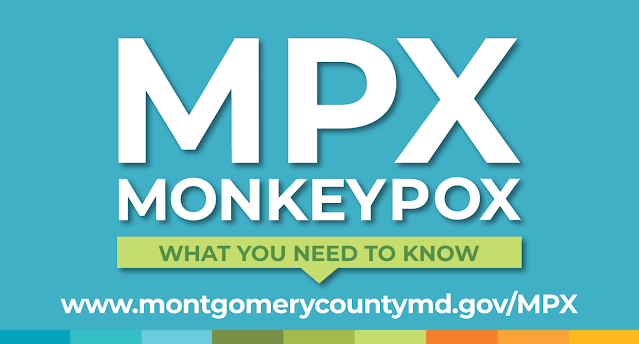
There are currently more than 3,000 at-risk Montgomery County residents pre-registered for a monkeypox vaccination. The County is now following revised Federal and State guidance that is expected to make vaccinations available quicker to those on the pre-registration list than in the past. Vaccinations are currently recommended for those most at-risk of contracting it.
Anyone can get monkeypox. However, the majority of cases have occurred within the LGBTQ+ community.
The County will transition from a two-dose subcutaneous (in the fat layer under the skin) regimen of JYNNEOS (given 28 days apart) to a smaller dose of JYNNEOS given intradermally (under the top layer of skin) in two doses. The regimen of doses also will be 28 days apart. With this new method, it is expected that the County will be able to offer vaccinations to those on the pre-registration list much faster. Updates will continue to be shared via social media.
As of earlier this week, Maryland had recorded more than 460 cases of monkeypox.
A virtual monkeypox town hall meeting for the Latino community will be held from 6-7:30 p.m. Monday, Sept. 12. The town hall will be streamed live on County Cable Montgomery and on Facebook.
More information is available here.
Monkeypox is spread through:
- Direct contact with the infectious rash, scabs or body fluids.
- Respiratory secretions during prolonged, face-to-face contact or during intimate physical contact, such as kissing, cuddling or sex.
- Touching items that previously touched the infectious rash or body fluids (such as clothing or linens).
- Pregnant people can spread the virus to their fetus through the placenta.
- Infected animals. It is possible for people to get monkeypox from infected animals, either by being scratched or bitten by the animal or by preparing or eating meat or using products from an infected animal.
People who do not have monkeypox symptoms cannot spread the virus to others.
More information on monkeypox and a link to the vaccine pre-registration survey is available at www.montgomerycountymd.gov/mpx.
